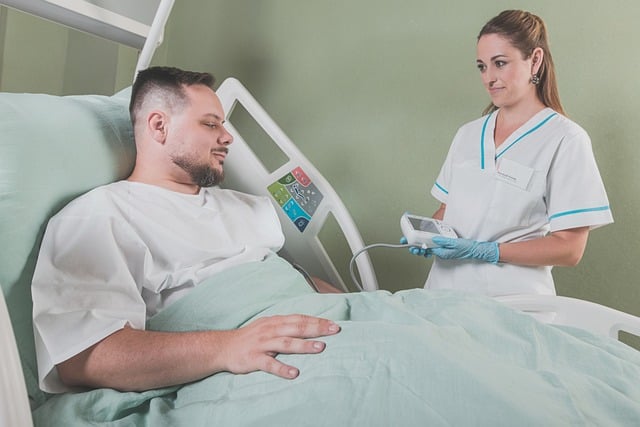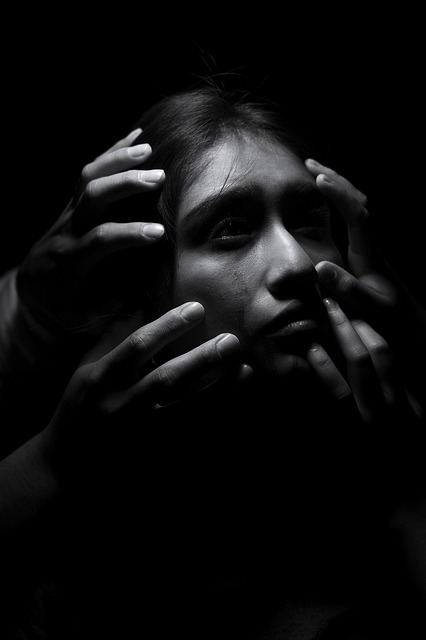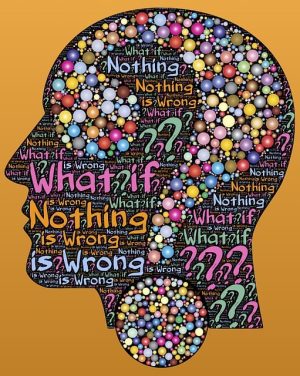Generalized Anxiety Disorder (GAD) is a common mental health issue characterized by persistent worry that interferes with daily life. Effective anxiety treatment for GAD involves psychotherapy, particularly Cognitive Behavioral Therapy (CBT) and mindfulness-based approaches, which help individuals identify and change negative thought patterns, learn relaxation techniques, and develop healthier coping strategies. Other methods include exposure therapy and group therapy. Integrating self-care practices like exercise, meditation, and balanced diets with professional therapy enhances overall well-being and supports long-term management of GAD symptoms.
Generalized Anxiety Disorder (GAD) is a common mental health condition characterized by excessive, persistent worry and fear. If you’re struggling with GAD, know that anxiety treatment is available. Psychotherapy, or talk therapy, plays a pivotal role in managing GAD symptoms. This comprehensive guide explores various therapeutic approaches, from Cognitive Behavioral Therapy (CBT) and mindfulness-based therapies to exposure therapy and more. We’ll delve into the benefits, challenges, and expectations of psychotherapy for GAD, emphasizing the importance of integrating self-care for optimal recovery.
Understanding Generalized Anxiety Disorder (GAD)

Generalized Anxiety Disorder (GAD) is a common mental health condition characterized by excessive and uncontrollable worry and stress, often affecting daily functioning. Individuals with GAD may experience persistent concerns about various aspects of life, such as work, health, family, or everyday routines, even when there’s little or no evidence to support these worries. This chronic anxiety can lead to significant emotional distress and physical symptoms like fatigue, muscle tension, insomnia, and difficulty concentrating.
The disorder often develops gradually, starting from mild worry and progressing to more intense and disruptive anxiety over time. It can impact people of all ages but typically starts during adolescence or early adulthood. Recognizing the signs and symptoms of GAD is crucial for effective anxiety treatment, which may include psychotherapy, medication, or a combination of both, tailored to each individual’s needs.
The Role of Psychotherapy in GAD Treatment

Psychotherapy plays a pivotal role in the comprehensive treatment of Generalized Anxiety Disorder (GAD). It offers individuals a safe and structured space to explore and manage their anxiety symptoms, providing valuable tools for coping with overwhelming worries and stresses. Through various therapeutic approaches, such as Cognitive Behavioral Therapy (CBT) or Mindfulness-Based Therapies, patients can gain insights into the underlying causes of their anxiety, challenge negative thought patterns, and develop healthier ways of responding to stressful situations.
By engaging in psychotherapy, individuals with GAD learn effective strategies to reduce anxiety, improve their overall well-being, and enhance their quality of life. These therapeutic interventions not only empower patients but also equip them with long-lasting skills to navigate challenging circumstances, ultimately fostering better mental health and a more balanced perspective on life’s anxieties.
Common Psychological Therapies for GAD

Anxiety treatment for Generalized Anxiety Disorder (GAD) often involves various forms of psychological therapies, each tailored to address specific symptoms and needs. Cognitive Behavioral Therapy (CBT) is a widely recognized and effective approach, helping individuals identify and modify negative thought patterns and behaviors contributing to anxiety. By challenging distorted beliefs and teaching relaxation techniques, CBT empowers patients to manage their worries more effectively.
Another popular therapy is Mindfulness-Based Cognitive Therapy (MBCT), which combines mindfulness practices with cognitive reframing. This holistic approach encourages individuals to stay present, accept their thoughts without judgment, and develop a non-reactive mindset. Additionally, Exposure Therapy is beneficial for GAD sufferers, gradually exposing them to anxiety-provoking situations in a safe environment, thus reducing fear and anxiety over time. These therapies offer proven strategies for managing and overcoming generalized anxiety disorder, enabling individuals to lead more fulfilling lives.
How Cognitive Behavioral Therapy (CBT) Addresses GAD

Cognitive Behavioral Therapy (CBT) is a highly effective anxiety treatment for Generalized Anxiety Disorder (GAD). This evidence-based approach targets the core beliefs and thought patterns that contribute to excessive and persistent worry and anxiety. CBT helps individuals identify and challenge irrational or unhelpful thoughts, replacing them with more realistic and balanced perspectives. By modifying these cognitive processes, CBT empowers people to manage their symptoms and reduce avoidance behaviors, ultimately leading to improved quality of life.
Through structured sessions, CBT encourages patients to face their fears in a safe and controlled environment. This process involves learning relaxation techniques, problem-solving skills, and coping strategies to better handle stressful situations. By gradually exposing oneself to anxiety-provoking scenarios, individuals can desensitize themselves to these triggers, leading to a significant reduction in GAD symptoms over time.
Mindfulness-Based Therapies and Their Efficacy in GAD

Mindfulness-based therapies have emerged as a powerful tool in the arsenal against generalized anxiety disorder (GAD). These approaches, including Mindfulness-Based Stress Reduction (MBSR) and Cognitive Behavioural Therapy (CBT) with a mindfulness component, focus on teaching individuals to be fully present and non-judgmentally aware of their thoughts and feelings. By cultivating mindfulness, patients learn to observe their anxious thoughts without reacting to them, thereby reducing the cycle of worry and rumination that characterizes GAD.
Numerous studies have demonstrated the efficacy of mindfulness-based therapies for anxiety treatment. Research shows that these approaches can significantly reduce symptoms of GAD, improve overall quality of life, and enhance emotional well-being. The effectiveness lies in their ability to help individuals develop a greater sense of self-awareness and coping skills, enabling them to better manage their anxiety in the long term.
Exploring Other Therapeutic Approaches: Exposure Therapy and More

For individuals seeking effective anxiety treatment, psychotherapy offers a comprehensive approach to managing generalized anxiety disorder (GAD). One particularly powerful technique within the realm of psychotherapy is exposure therapy. This evidence-based method involves gradually exposing individuals to situations or objects that trigger their anxiety in a safe and controlled environment. By facing these fears, patients learn coping strategies and realize that their feared outcomes are unlikely to occur.
Beyond exposure therapy, various other therapeutic approaches have proven beneficial for anxiety treatment. Cognitive Behavioral Therapy (CBT) focuses on identifying and changing negative thought patterns associated with anxiety. Mindfulness-based therapies teach individuals to stay present and non-judgmentally aware of anxious thoughts and sensations, fostering a sense of calm. Group therapy provides a supportive setting where individuals can share experiences and learn from one another, enhancing the overall effectiveness of anxiety treatment.
Benefits, Challenges, and Expectations of Psychotherapy for GAD

Psychotherapy offers a range of benefits for individuals struggling with Generalized Anxiety Disorder (GAD). Through tailored talk therapy sessions, patients can learn to identify and challenge negative thought patterns and behaviors that contribute to their anxiety. This process empowers them to develop healthier coping mechanisms, improve emotional regulation, and gain a deeper understanding of their underlying causes. Many individuals find solace in the supportive environment, leading to reduced anxiety symptoms and an enhanced overall well-being.
Despite its advantages, psychotherapy for GAD is not without challenges. It requires dedication, openness, and vulnerability from the patient as they confront difficult emotions and memories. The process may be slow, and setbacks are common. Finding the right therapeutic approach and aligning with a compatible therapist is crucial for success. Expectations should be realistic, focusing on gradual progress rather than immediate cures. With consistent effort and the right support, psychotherapy can transform lives by offering long-lasting coping strategies for anxiety treatment.
Integrating Self-Care with Professional Treatment for Optimal Results

For individuals seeking anxiety treatment, integrating self-care practices alongside professional psychotherapy can significantly enhance overall well-being and recovery outcomes. Self-care plays a pivotal role in managing generalized anxiety disorder (GAD) by providing additional tools to cope with symptoms and promoting resilience. Techniques such as regular exercise, mindfulness meditation, and maintaining a balanced diet not only support physical health but also strengthen the mind’s ability to manage stress. These practices create a solid foundation for the more targeted work done during therapy sessions.
By combining these approaches, individuals can experience a more holistic improvement in their anxiety levels. Professional treatment equips clients with evidence-based strategies tailored to GAD, while self-care acts as a supportive system, reinforcing positive changes and fostering better mental health outcomes. This dual approach ensures that both the mind and body are nurtured, leading to a more sustained sense of calm and reduced anxiety symptoms over time.
